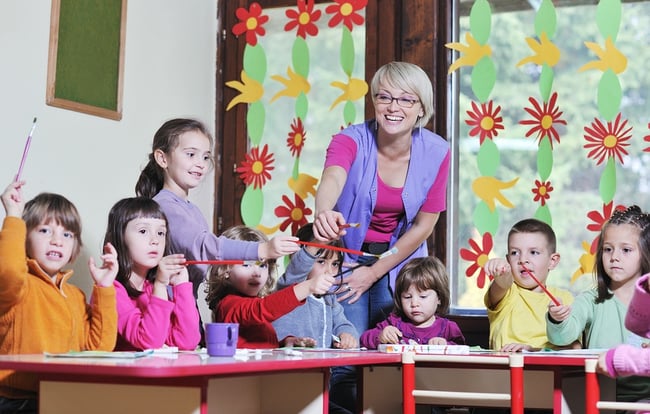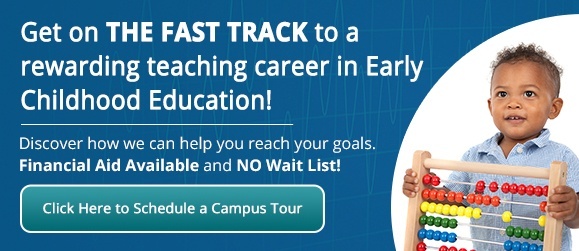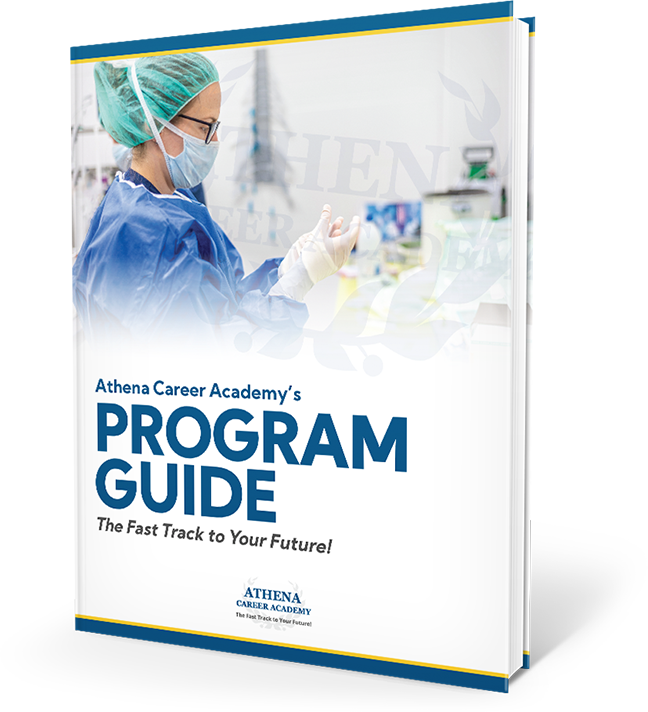
It’s the start of a new school year. Anxious minds sit calmly in their chairs, excitedly clinging onto every word you have to say. The twenty young minds you’re teaching are eager and ready to master reading, writing, and math. As an Early Childhood Education teacher, your heart is wide, and your goals are lofty as you attempt to help your students develop a firm foundation of learning that they’ll proudly carry with them throughout their education. But, you know that reality rarely matches these expectations.

The challenges you’ll face as an Early Childhood Educator may be difficult, but they are not impossible to overcome. Young children often have a difficult time focusing for long periods of time Developmental and educational needs may also affect how effectively your classroom learns each day. One of the best ways to overcome these obstacles is to incorporate different learning styles directly into your teaching efforts.
Seven Common Learning Styles in Education
For most of your students, their most natural learning process can be described in one or two the following learning styles. The first three listed are considered to be the primary learning styles for students, while the four additional styles further break down a child’s natural learning tendencies.
Visual Learning
Many children learn most effectively through what they see. Teachers can use pictures, posters, videos, other images and simple spatial understanding to help children visualize the information they are learning in class.
Verbal Learning
Other children learn and comprehend lesson material best through words. This includes both what they read and what they hear or say verbally. These children can read a chapter in a story and understand the details simply by comprehending the words they read on the page.
Physical Learning
This form of learning is kinesthetic. Through active play, physical activity, or intentional movements, children can not only connect with the material through creative interaction, but they can also prepare their minds and bodies physically to focus on the learning process too.
Auditory Learning
This form of learning, while similar to verbal learning, offers children an opportunity to learn new material through music or sound. Children might memorize the months of the year while singing a song or memorizing a phrase. Many mnemonic devices are one common example of Auditory Learning.

Logical Learning
Children who best learn through Logical Learning styles seem to comprehend information best through logic, reasoning and systems. This learning style is structured or formulated with orders and steps. This approach is usually a key component of math lessons, but may also be incorporated into other areas of early childhood education. One classroom example might involve teachers having students put different parts of a story in chronological order.
Social Learning
This form of learning is interpersonal. Students who are social learners seem to comprehend information best when learning in group settings. The discussion of ideas and the connectivity with others allows children to focus, learn, and work hard on the material at hand.
Solitary Learning
For children who are solitary learnings, working quietly alone without group interaction is necessary for focus and comprehension. These individuals may have a difficult time taking tests around many other students; they may avoid opportunities to read out loud in class and they may not work well on group projects.
A good Early Childhood Education teacher understands that while the primary part of a children’s educational experience is academic, there are other aspects such as learning self-management skills, social skills, and emotional skills that naturally become part of the learning process.
The goal is always to equip every child for success and to maximize their potential for learning. Teachers may be inclined to teach based on their own preferred learning style. But, as an Early Childhood Education teacher, your role is help lay a foundation for learning for young minds who are establishing learning habits. To be successful, Early Childhood teachers must learn to incorporate a multitude of learning styles into each lesson.
Set SMART Goals

It might seem too challenging to incorporate all seven learning styles into a single lesson, when you are one teacher and every child has such different needs. But small simple inclusions carefully planned out can be exactly what is needed to draw a student in to a lesson they may normally tune themselves out of otherwise. By discovering what your students’ learning styles truly are, you may be able to find practical solutions to many of their behavioral patterns, emotional needs, and their social needs with their peers.
After all, a child’s learning style(s) will greatly affect how they think, how they perceive their surroundings, and the way they sense the circumstances around them. As their teacher, it’s your job to help them do these things successfully.
Interested in changing a child’s life and helping them discover their true learning potential by becoming an Early Childhood Education teacher? Our comprehensive ECE program at Athena Career Academy will give you everything you need to successfully graduate with an Associate Degree in Early Childhood Education and prepare you for an exciting career in education. Contact Athena Career Academy today to get started!







